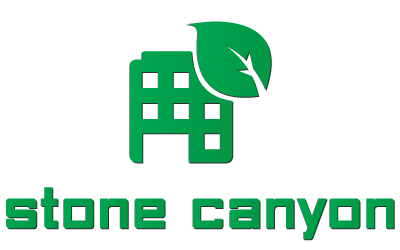
Whether you're considering starting a new career in environmental consulting or you're interested in working for a local nonprofit, you'll find a variety of options in the Bay Area. Nomad's team of ecologists includes botanists, wildlife biologists and arborists. Many Nomad members have made a career out of their work in the Bay Area.
The San Francisco Bay Area is where Nomad's experienced ecology professionals have made their career.
Nomad Ecology is a San Francisco-based start-up with seasoned ecology professionals who have extensive knowledge of the ecosystems and regulatory environment of the Bay Area. The team includes wildlife biologists (botanists), GIS practitioners, arborists and drone pilots.
Toxics Reduction Program Manager: In this position, you will lead programs and projects that improve public health and the environment. Your responsibilities include managing budgets, developing partnerships, hiring staff, and supporting policies and programs. You will identify new opportunities to reduce toxic chemical and promote safer alternatives. You will also be responsible for safe and responsible disposals of hazardous waste.

Nomad employs botanists and wildlife biologists as well as arborists.
The company is currently looking to hire a junior to senior-level botanist and wildlife biologist to join its team. Please see attached job announcements if you are interested in these positions. The team is committed in protecting and restoring nature's resources.
Tree-loving licensed arborists are experts in the care and maintenance of forests. Their work covers everything from diagnosing and monitoring trees' health problems to caring for them. They are also able to help with tree-related tasks such as planting, transplanting and pruning. They might also be needed to protect trees or forests from lightning.
Certificates
There are many certifications that you can get for environmental consulting in San Francisco. These certifications are useful for getting more clients, obtaining better-paying jobs, and gaining the best training. These certifications can be beneficial for different professionals and some are more specific than others. You don't necessarily need them all, but you can choose the one that suits your needs.
In addition to certifications, you can also get an internship and gain valuable work experience that will look great on your resume. It is important to choose internships that allow you to gain practical experience with your chosen career path. An internship in environmental consultancy can involve data collection and reporting, as well as field work.

Environment consultants need to find a balance between work and family.
Although a career in environmental consulting can offer a lot of satisfaction, it does have its downsides. The work can be repetitive and requires a lot of self-motivation. Furthermore, you will have clients who are difficult and must keep track of your hourly billing.
Many environmental consultants study geology, environmental science, or chemical engineering. It may also help to have a background in business and public relations. These professionals will need to be knowledgeable about environmental regulations and policies. These professionals must also be able to communicate effectively.
FAQ
What qualifications do you need to be a consultant?
You don't just need to have a MBA, you also need to demonstrate your ability as a business consultant. You should have at least two years of experience in consulting and/or training for a major company.
You must have worked closely with senior management teams on strategy development projects. This would require you to be comfortable with presenting ideas and getting buy in from clients.
You'll also need to pass a professional qualification exam such as the Chartered Management Institute's Certified Management Consultant (CMC) certification.
Why should consultants be hired?
There are many reasons you might need to hire a consultant.
-
Your organization may have a specific project or problem that needs solving
-
You are looking to learn new skills or improve your existing skills
-
You'd like to work in conjunction with an expert in a specific field
-
The task is yours alone.
-
You feel overwhelmed by all the information and don’t know where to begin.
-
You cannot afford to pay someone fulltime
You can find good consultants by word of mouth. Ask your friends and family if they know of any reliable consultants. Ask your friends and family for referrals if you know someone who is a consultant.
If you're interested in using online directories, such as LinkedIn, you can use the "Search People” feature to find consultants near your location.
What happens after the consultant has finished the job?
After the consultant completes the work, s/he will submit a final report detailing the results of their work. This report includes project timelines, deliverables, and any other pertinent information.
After that, you'll go through the report and decide if it meets your expectations. If the report does not meet your expectations, you have two options: to request changes or to terminate the contract.
How can I select a consultant?
Three main factors should be considered:
-
Experience - How much experience does this consultant have? Is she an expert, beginner, intermediate or advanced consultant? Is her resume a proof of her skills and knowledge?
-
Education – What did the person learn in school? Did he/she take any relevant courses after graduating? Is there evidence that he/she learned from the writing style?
-
Personality - How do we feel about this person? Would you want this person to work for you?
-
These questions help to decide if the consultant suits our needs. If the answers to these questions are unclear, it might be worth a first interview to get more information about the candidate.
What was the origin of modern consultancy?
Consultants were originally accountants who could help companies manage their financial affairs. Because they were skilled in managing financial information, they became "accounting consulting". The role soon expanded to include other areas, including human resources management.
The French word for advice, "consultant", was originally used to describe someone who could advise on the management of an organization. The word consultant is still used by most business owners to refer to any kind professional advisor.
Statistics
- So, if you help your clients increase their sales by 33%, then use a word like “revolution” instead of “increase.” (consultingsuccess.com)
- 67% of consultants start their consulting businesses after quitting their jobs, while 33% start while they're still at their jobs. (consultingsuccess.com)
- "From there, I told them my rates were going up 25%, this is the new hourly rate, and every single one of them said 'done, fine.' (nerdwallet.com)
- On average, your program increases the sales team's performance by 33%. (consultingsuccess.com)
- WHY choose me: Why your ideal client should choose you (ex: 10 years of experience and 6-week program has helped over 20 clients boost their sales by an average of 33% in 6 months). (consultingsuccess.com)
External Links
How To
How do I start a consultancy company?
It's a great way for you to make money online by starting a consulting company. No prior business experience is required. A good place to start your own consulting company is to build a website. Once you have a website built, you can start using social media platforms such Instagram and Pinterest to spread the word about you services.
You can create a marketing strategy that includes these things with these tools
-
Content creation (blogs).
-
Establishing connections (contacts)
-
Generating leads (lead generation forms).
-
Selling products online
Once you've created your marketing strategy, the next step is to find clients who are willing to pay you for your services. Some prefer to connect with people through networking events. Others prefer to use online resources like Craigslist and Kijiji. You have the freedom to choose.
Once you have secured new clients, you will need to discuss terms with them and their payment options. You can discuss hourly rates, retainer agreements, flat fees, and other options. You need to be clear about what you expect of a client before they accept you as a client.
The most common type of contract for a consultancy service is an hourly agreement. In this case, you agree to provide certain services at a fixed rate each month or week. You might be able, depending on which service you offer, to negotiate a discount. It is important to understand the terms of any contract you sign before you sign it.
Next, you will need to create invoices that you can send to your clients. Invoicing can be a complicated task until you actually attempt it. There are many ways to invoice clients. It all depends on your preference. For instance, some prefer their invoices to be emailed directly to clients while others prefer hard copies to be mailed. Whatever method you choose, make sure it works for you!
After you've created your invoices, you can collect payments. PayPal is preferred by most because it is easy-to-use and offers multiple payment options. Other payment processors, like Square Cash or Google Wallet, Square Cash or Apple Pay, Venmo and Venmo are also available.
Once you're ready to begin collecting payments, you'll want to set up bank accounts. Separate savings and checking accounts will allow you to track your income and expenses independently. Automated transfers into your bank account are a great way to pay bills.
It can seem daunting to start a consulting business. But once you understand how it works, it becomes second nature. You can read our blog post to learn more about how to start a consultancy business.
Starting a consulting firm is a great way to earn extra cash without worrying about employees. Many consultants work remotely, which means they don't have to deal with office politics or long hours in the office. Since you are not tied down by regular working hours, you have more flexibility than a traditional employee.